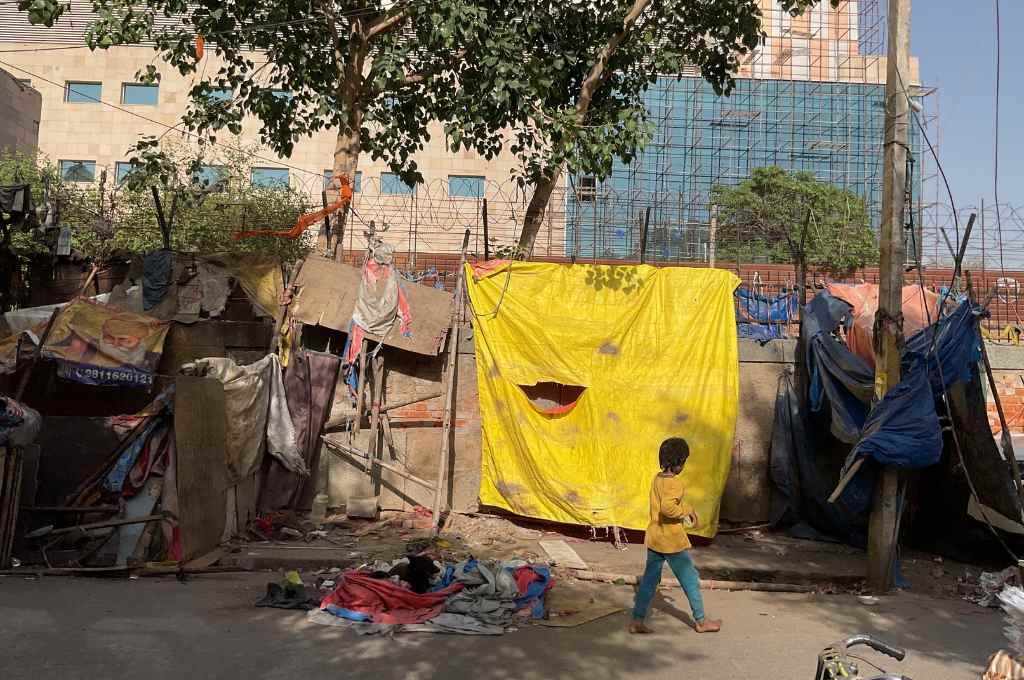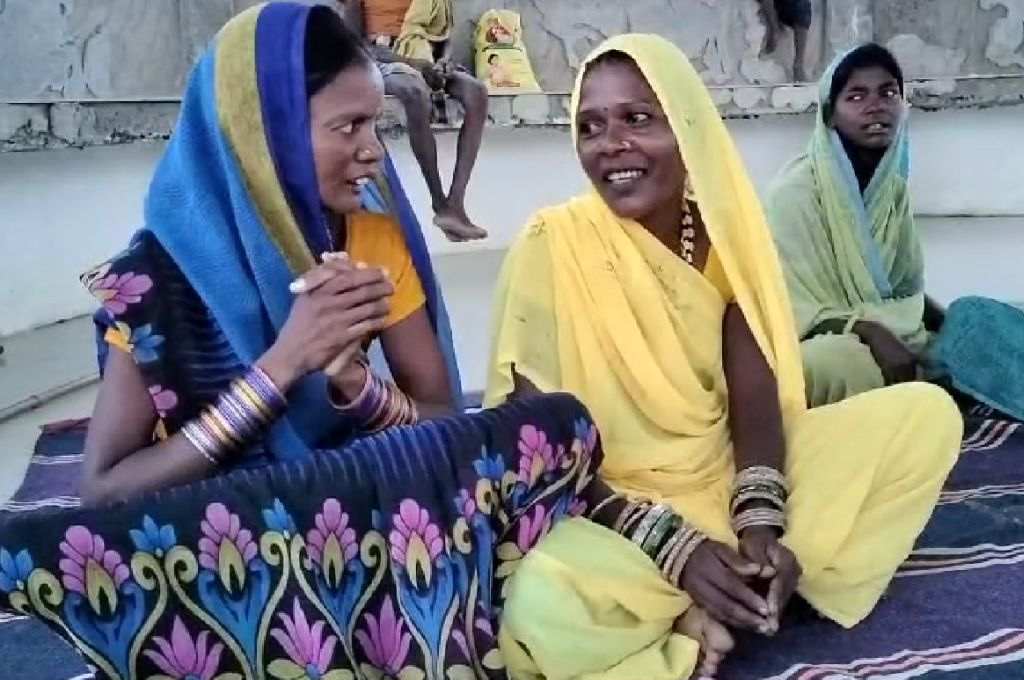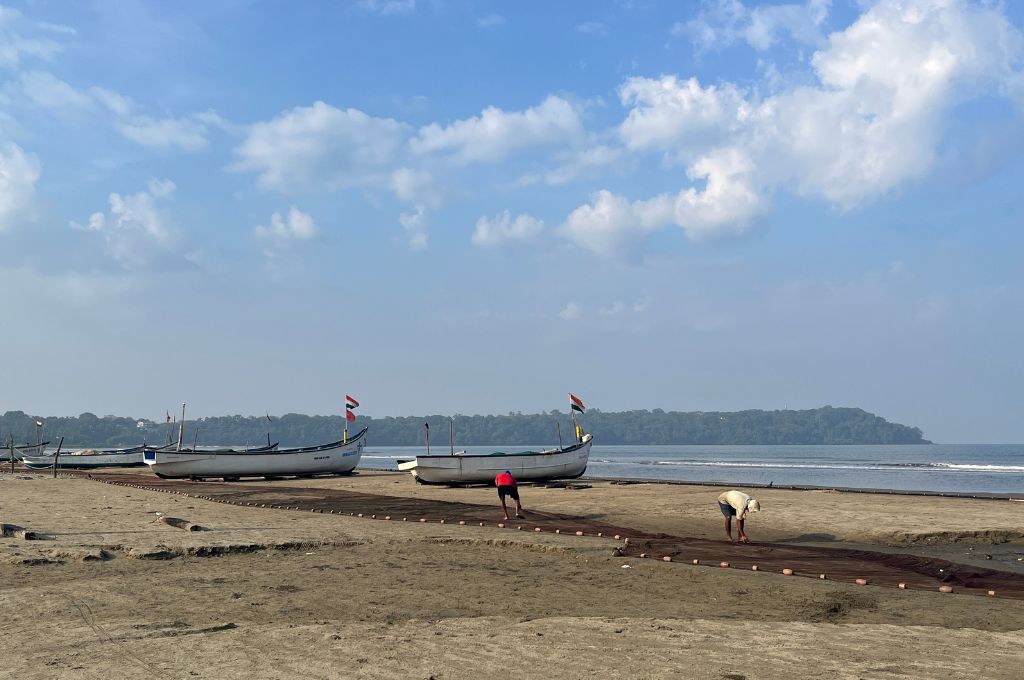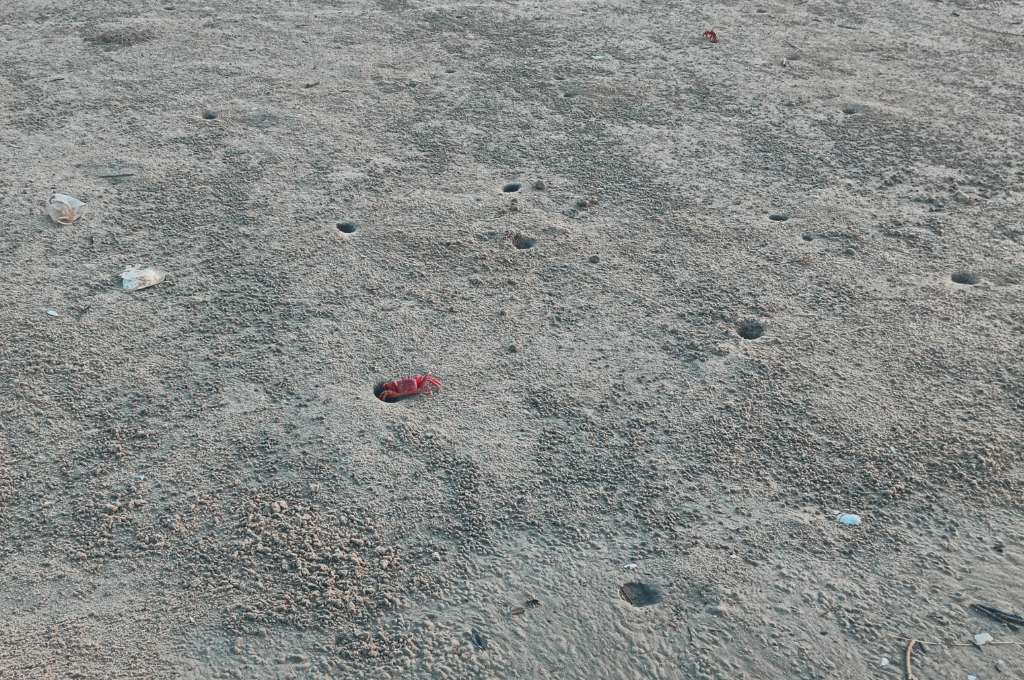The aftermath of a demolition: “Will the government give us houses?”

On April 29, the Municipal Corporation of Delhi (MCD) demolished 50–60 jhuggis along the footpath in West Delhi’s Raghubir Nagar. These jhuggis—with tarpaulin sheets or tin for roofs—were predominantly inhabited by families engaged in pheri (traditional cloth recycling). The women residing in these houses would barter utensils for old clothes in the neighbourhoods of Delhi and earn a living by selling these in the recycling markets.
The MCD’s demolition came without any prior notice. A 26-year-old woman holding her seven-month-old baby said, “They didn’t even give us a verbal notice, forget about anything in writing. Where will we go with our children?” The bulldozer arrived unannounced at 10 am, and left at approximately 12 pm after demolishing the temporary settlements.
Another local added, “We weren’t given the time to shift our belongings or even comprehend where to go. We questioned them on why we were being removed, but they showed no interest in responding.”
The residents’ claim to the settlement spans generations, with many tracing their roots back to 1982. Durga,* a 62-year-old woman, asserted, “Even our children and grandchildren were born here. We possess voter cards, Aadhaar cards, ration cards, school certificates, all essential documents of this place.”
Delhi’s Slum and Jhuggi Jhopri Rehabilitation and Relocation Policy, 2015, says that settlements established prior to January 1, 2015, and slums that came into existence before January 1, 2006, cannot be removed without providing the dwellers alternative housing. Therefore, these essential documents act as proof of their residence at the site, making them eligible for the rehabilitation services.
Gauri,* a resident, expressed her frustration, “They even tore our tarpaulin sheets. Do they comprehend the struggle of erecting these jhuggis? Will the government provide us with new tarpaulins, let alone houses?”
In the aftermath of the demolition, residents continue to live amid the rubble. They want to raise tarpaulin sheets to deal with the heat and unseasonal rains, but are hesitant due to the fear of police action.
*Names changed to maintain confidentiality.
Anuj Behal is an urban researcher and practitioner.
—
Know more: Learn how forced resettlement is affecting the livelihoods of pheriwalis in Delhi.
Do more: Connect with the author at [email protected] to learn more about and support his work.



